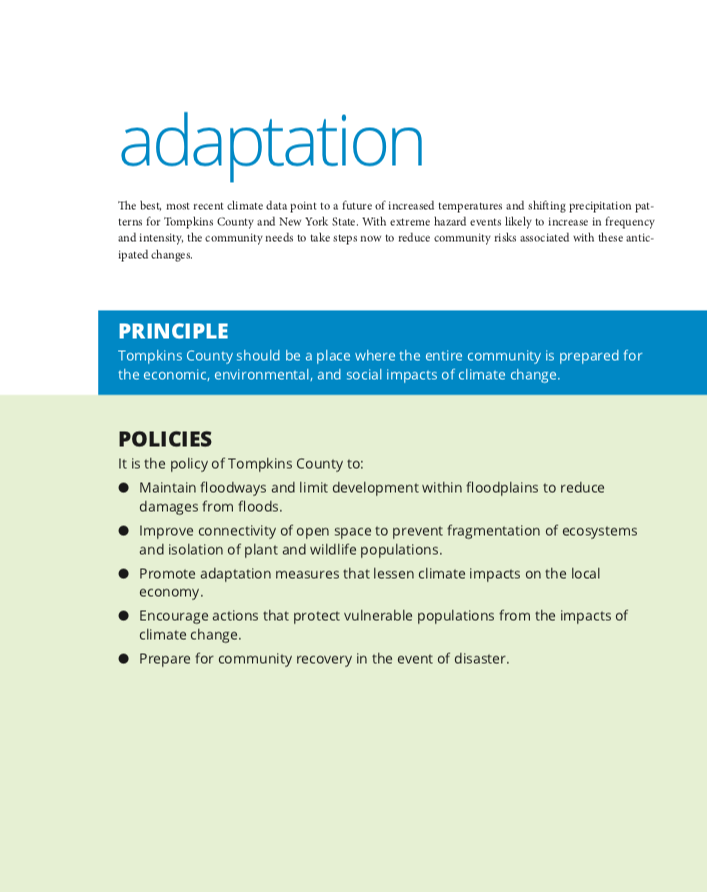Climate Resiliency
Cornell has advanced campus, state, and regional resiliency planning as part of our approach to climate action.
Advancing Resiliency in New York
As New York’s land grant university, Cornell is committed to engaging the public in climate and energy solutions. Cornell Cooperative Extension offices in counties across New York State support renewable energy and energy efficiency planning and implementation among local governments, businesses, and directly with homeowners.
As the host of the Northeast Regional Climate Center, Cornell works with federal agencies such as NOAA to provide accurate climate data and analysis tools for the 12 state region. As part of the University’s land-grant mission, Cornell faculty, graduate students, and extension staff support climate science and adaptation planning for New York State and the wider Northeast Region. The data and many interactive analysis tools are publicly available.
Cornell provides climate adaptation support to farmers across the state through the Cornell Cooperative Extension and Agricultural Experiment Stations. Cornell's Climate Smart Farming (CSF) Team provides New York farmers with access to the top Extension specialists in the state to help them manage the risks posed by increasingly erratic and extreme weather events and climate impacts and plan for emissions reductions and carbon sequestration on the farm. Working in partnership with climate and agriculture researchers at Cornell, the team draws on the latest science to answer growers’ questions about changes they can make to their management practices that will help increase resiliency and farm sustainability.
Resiliency Pathways
By innovating and demonstrating new approaches to infrastructure development and emergency response on our own campus, Cornell can support and inform state and national climate adaptation planning.
Campus Resiliency
Conduct vulnerability assessments
and climate adaptation planning in order to minimize disruptions to campus as a result of extreme weather events and increased
flood risks.
Local Resiliency
Collaborate in local, regional, state, national, and international planning efforts to address challenges posed by climate change and to increase resiliency.
Cornell will need to work closely with local partners and Tompkins County to assess and prepare for climate impacts in coming years.
Cornell’s actions to mitigate climate change-related hazards will have widespread impacts across Tompkins County. Cornell University is the largest private land owner and employer in the county, and approximately 60,000 people live or work on Cornell property or adjacent to Cornell properties.
Current Adaptation Needs
Based on cost estimates from the Tompkins County All Hazard Mitigation Plan, Cornell could experience significant capital losses and health related costs in the range of $10,000 to $10M per event from predicted increases in severe droughts, flash floods, heat waves, and disruptions to water filtration systems as a result of climate change.
The Tompkins County Hazard Mitigation Plan was updated in 2022 to reflect the increased understanding that climate change-related hazards needed to be specifically addressed. The County mitigation plan names Cornell as a partner in several key actions to mitigate the damage of climate change, including:
- Developing regulations to prohibit future building in flood-prone areas as well as creating incentives to encourage property owners to protect and improve streams and buffers. This should include improving gorge safety and carefully designed and maintained trails within these buffer areas.
- Developing and publicizing a heat response plan which includes the use of cooling centers.
- Working with the scientific community to update and refine regional climate projections/impacts and utilizing this information in planning and management.

